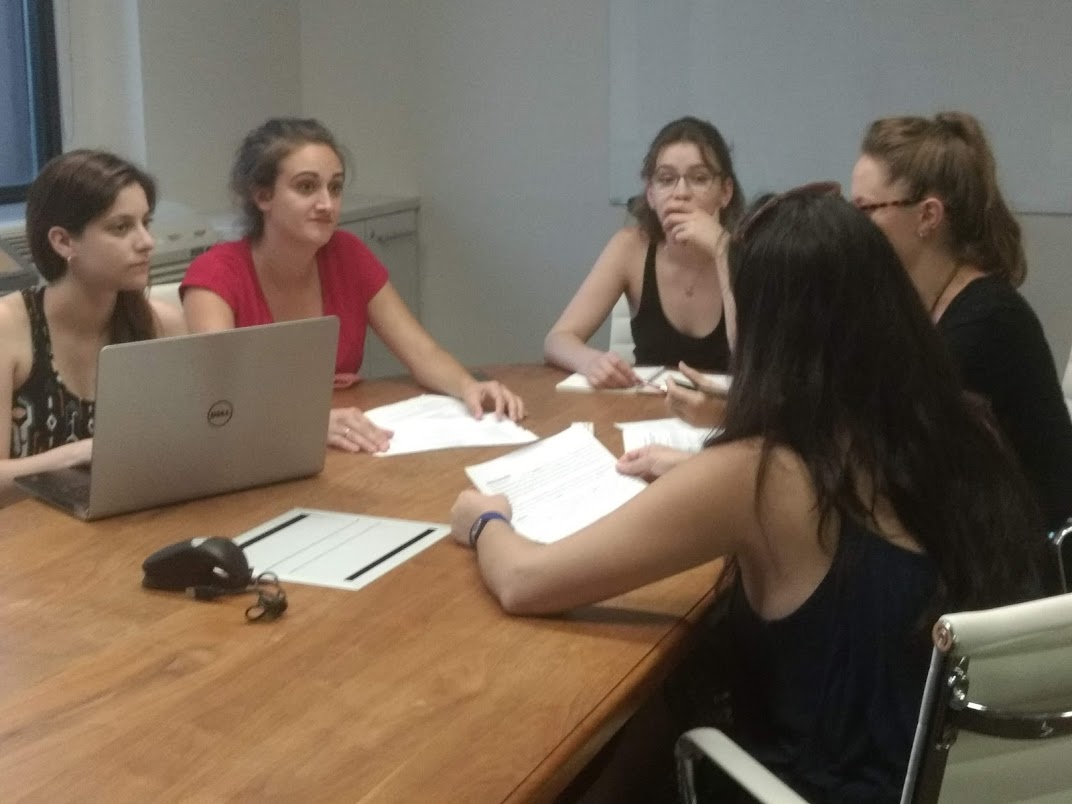
Over the course of two weekends in the month of August 2018, a graduate research team from Université de Montréal conducted field work in Toronto out of the IIS offices. We were a team of about ten Masters and Doctoral students from UdM’s sociology department. Our project, entitled “Political Fictions : An analysis of fictional narratives about the figure of menace, their reception and the make-up of mediatized, engaged publics” is lead by Professor Valérie Amiraux, supported by the research group PLURADICAL and financed by the SSHRC. PLURADICAL (https://www.pluradical.ca) is an interdisciplinary research program that considers pluralism an ordinary constraint of contemporary societies. The PLURADICAL research approach proposes to conceive radicalization as a form of social interaction produced by the relation to otherness. The research and programming integrates different sites where concrete scenarios of radicalization are observable and analysable, and is articulated in four axes of research: competing normativities, judicial arenas, pluralism in the city, and representations of the otherness.
Our work at the IIS focused on representations of otherness, where focus group participants were asked to reflect on a series of representations of terrorism, violence, and otherness. Our aim was to examine how different audiences process television depictions of terror. We planned on observing these strategies during small discussion groups, ten of which were planned in Toronto for the summer of 2018. We knew that finding a space to organize and carry out these groups would be key to the success of our endeavors and we contacted Professor Emon in mid-July to inquire about any leads with the University of Toronto. This was the beginning of a fortuitous relationship.
As recently appointed director of UofT’s IIS, Professor Emon offered the IIS office space as a site for our discussion groups, explaining that it had an adequate conference room and was ideally located downtown. This description was accurate, but did not truly encompass all the perks of this space that we would discover upon arrival. When we finally did make it Toronto for the first round of five discussion groups in the middle of August, we enjoyed full usage of the entire Institute. The conference space was beautiful, luminous, cool and spacious with all the modern technology equipment that we needed. The kitchen and office space were invaluable to us as we had to provide refreshments and manage paperwork and logistics in a space away from our participants.
At the IIS, we conducted focus group sessions, often 2-3 per day, hosting nearly a dozen people per session. Watching media depictions of Islam and Muslims, reflecting on issues of radicalization and policing, the participants shared their take on the various depictions we asked them to watch. As these issues can be sensitive for some, we found the seminar space at the IIS generative of a cool, calming space for reflective discussion. On a broader scale, the aim of these sessions is to shed light on how society understands the representations around the “terror threat” as depicted in television series.
Though there can be many stressful aspects to research projects, our experience at the IIS proved to be just the opposite – a source of fruitful collaboration within the wider world of Canadian academia. From its location and space, to the staff and its leadership, the IIS offered a wonderful space for facilitating a collaborative partnership between two Canadian research institutions. We look forward to our next collaboration.
Hannah Brady




